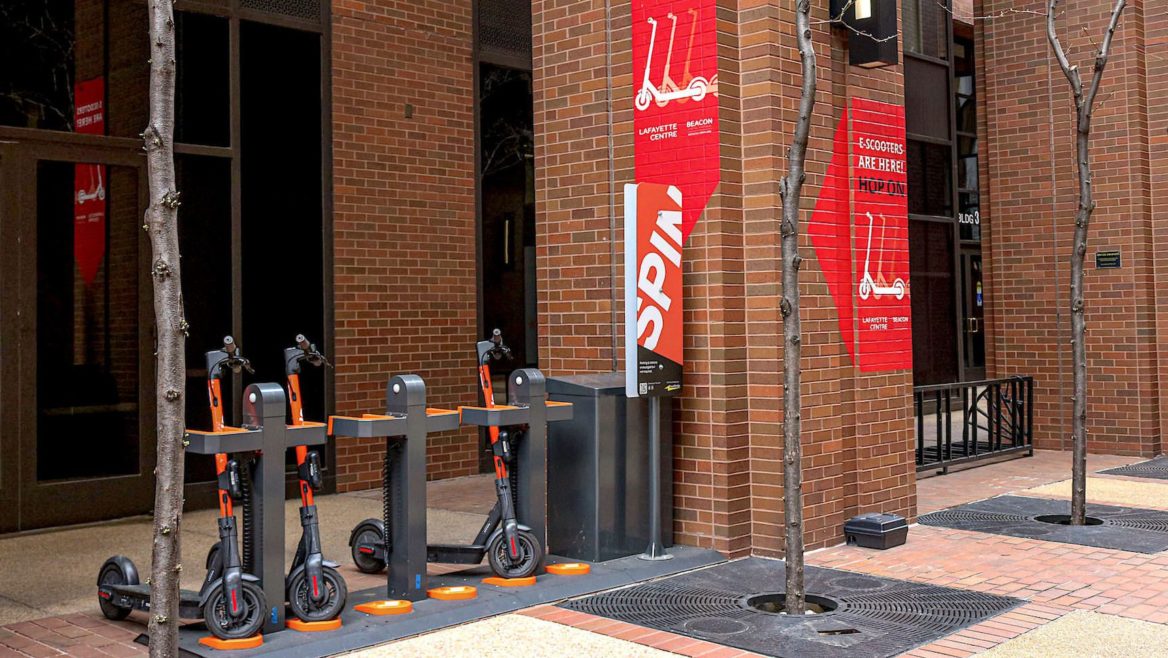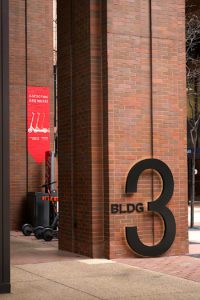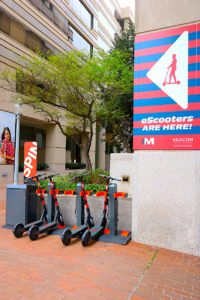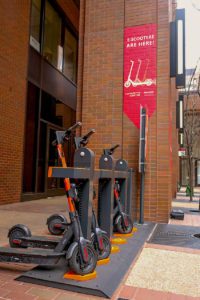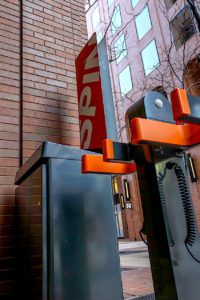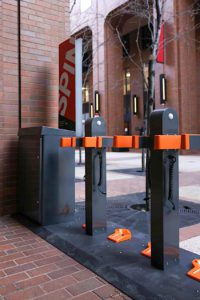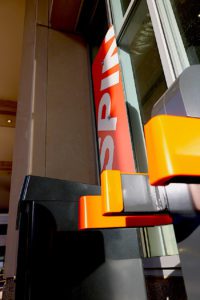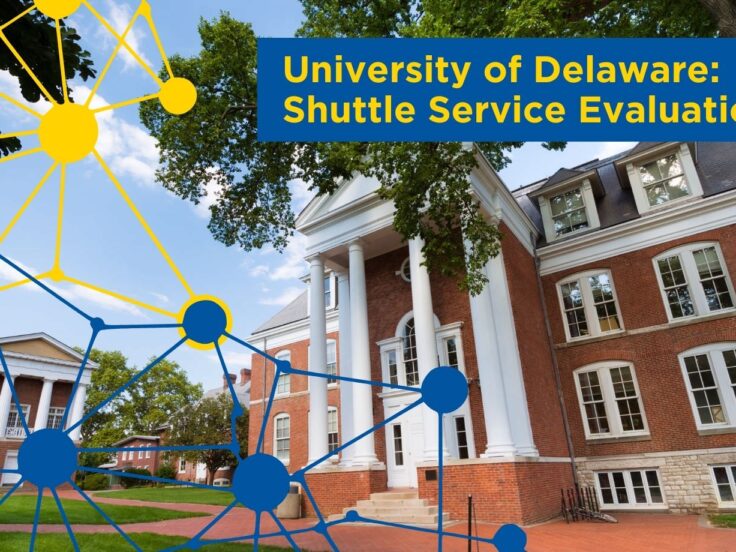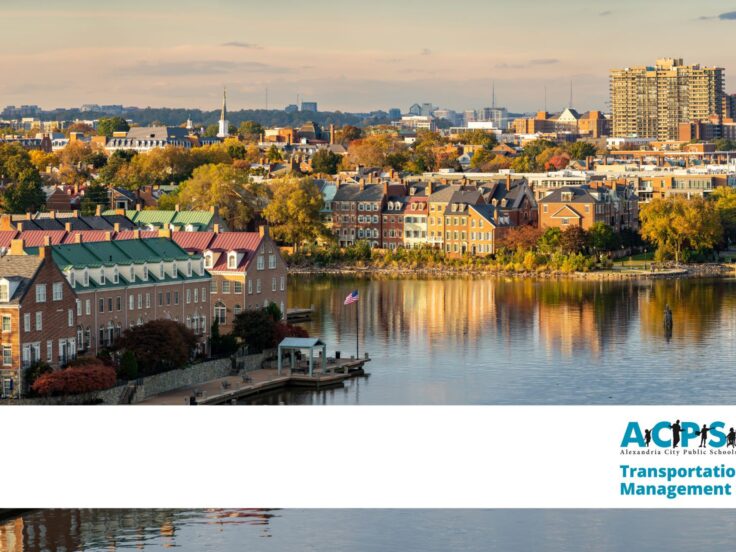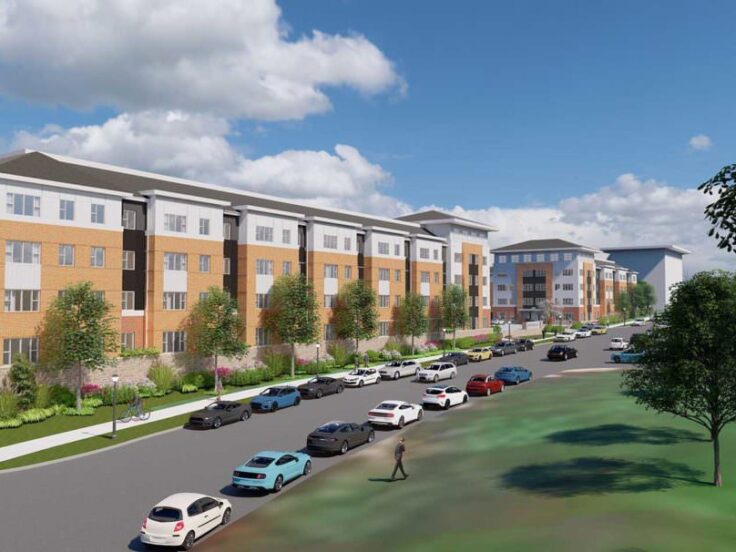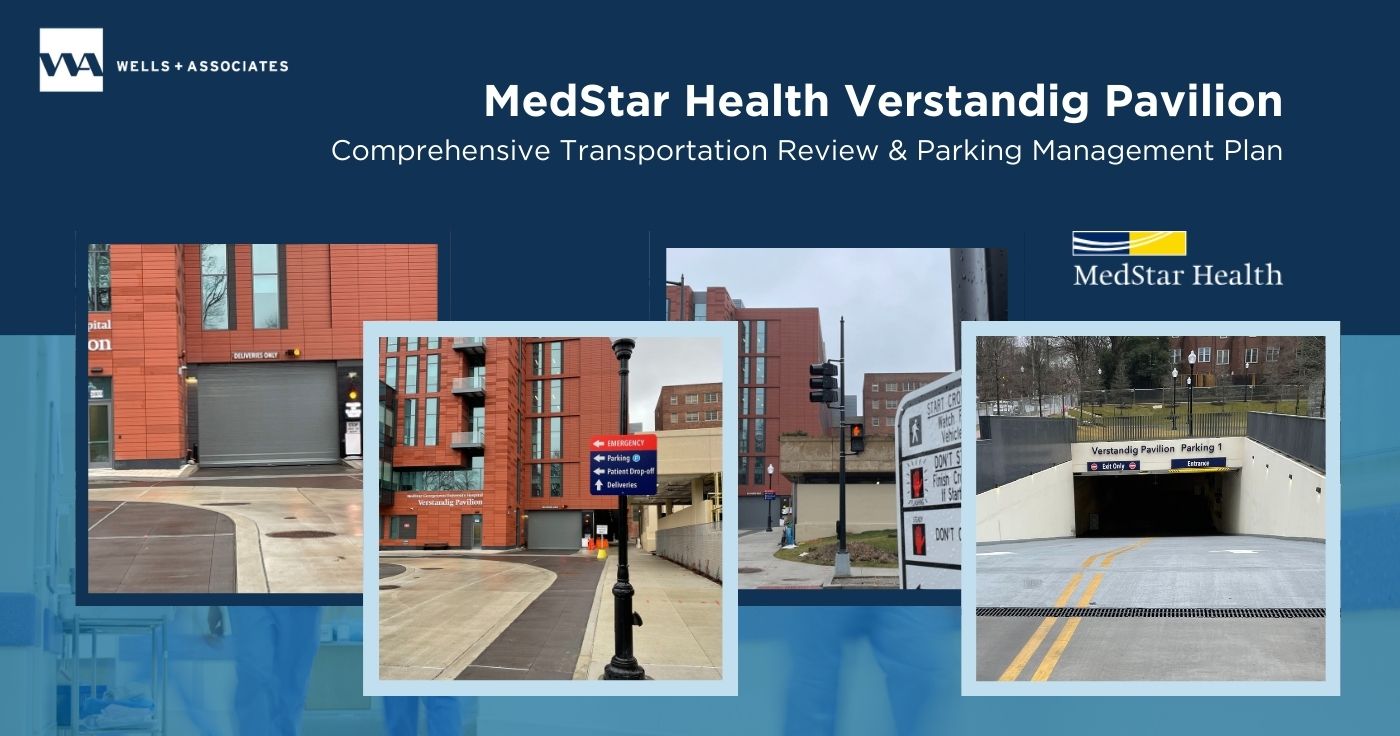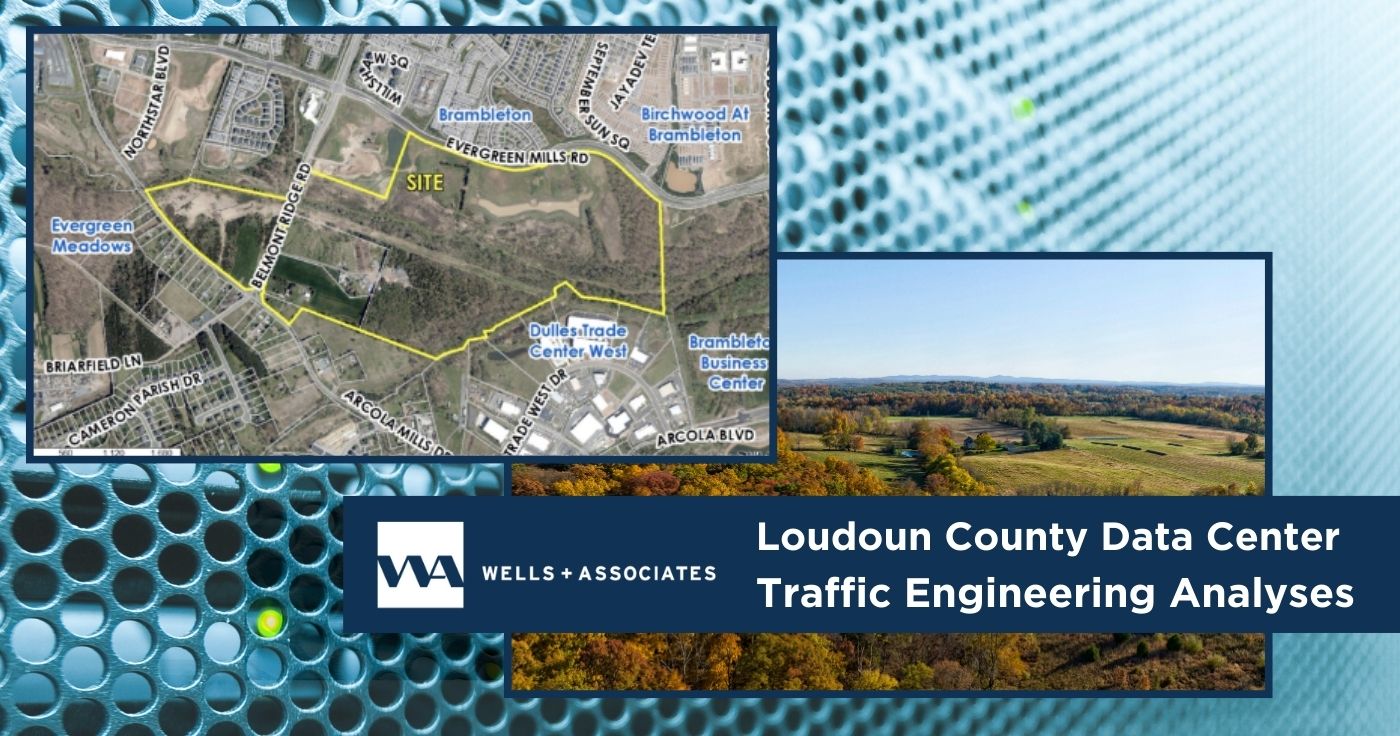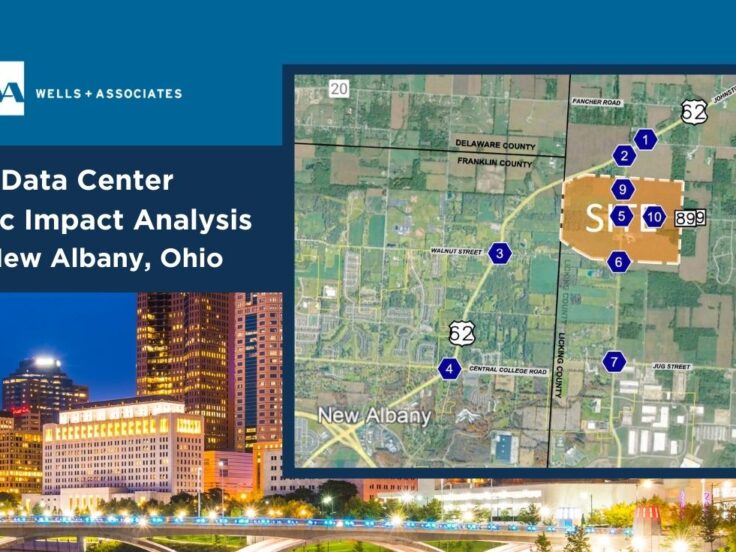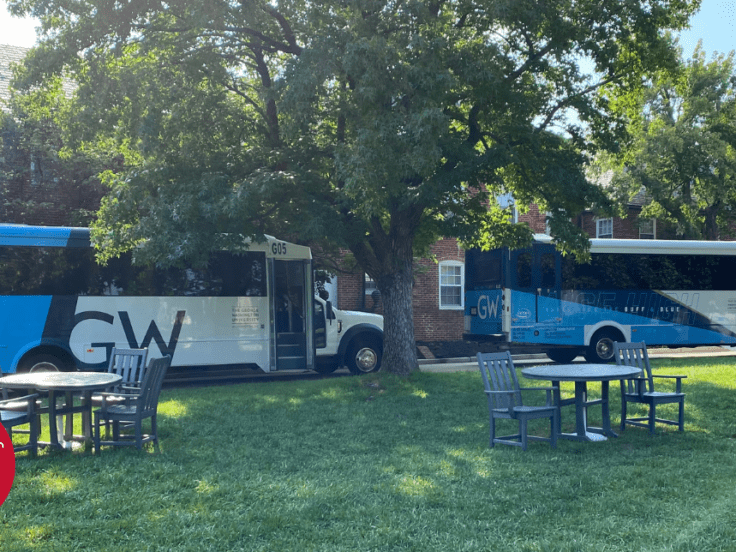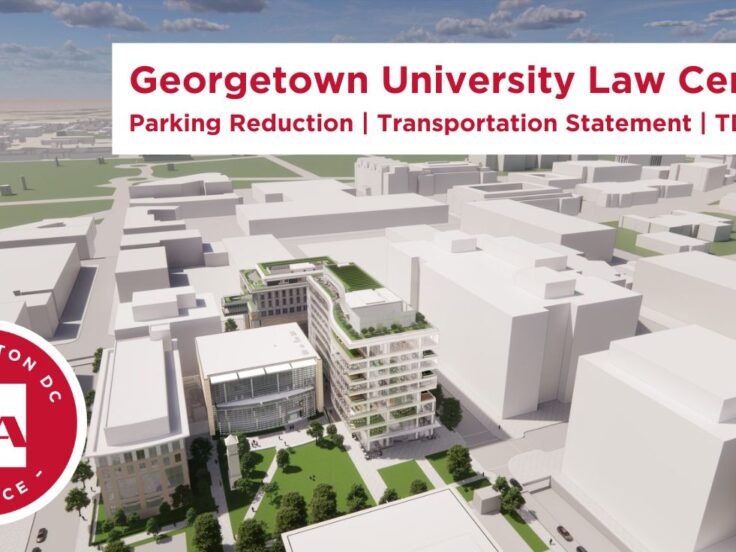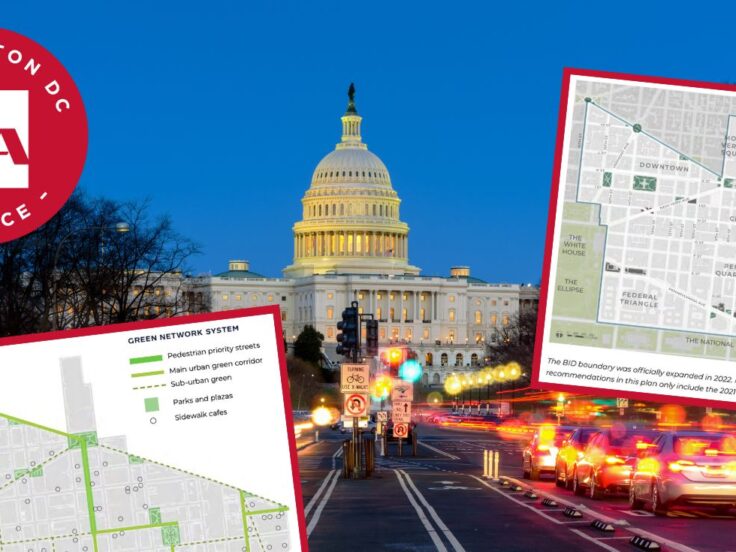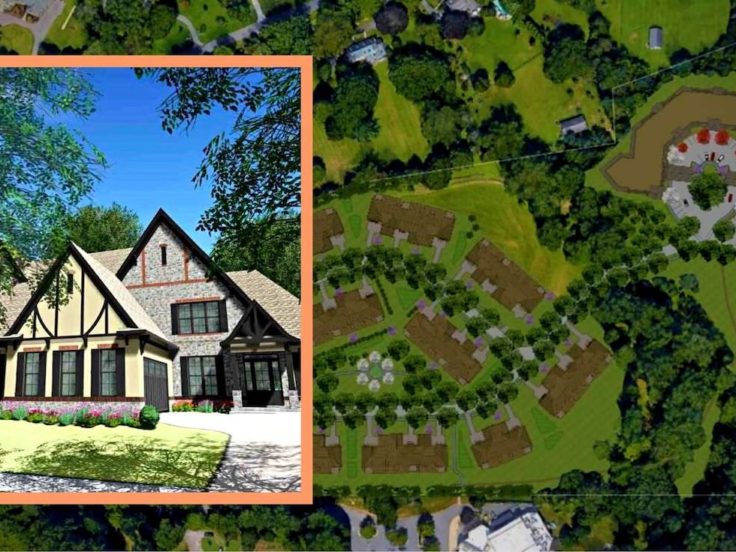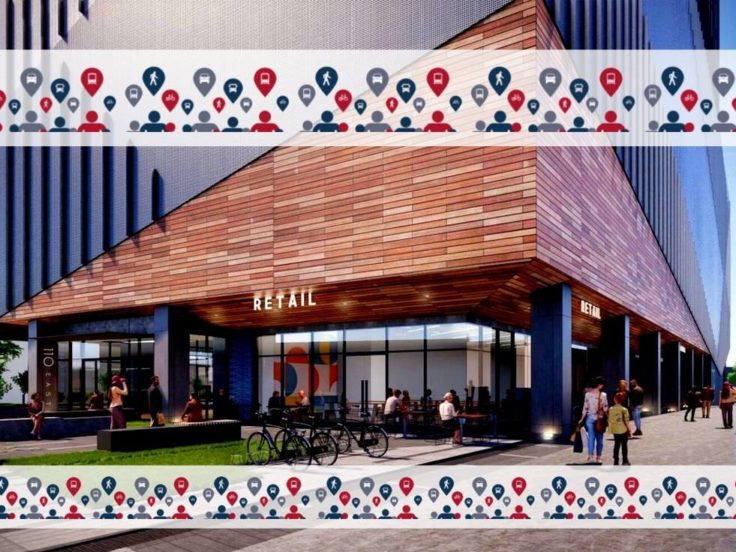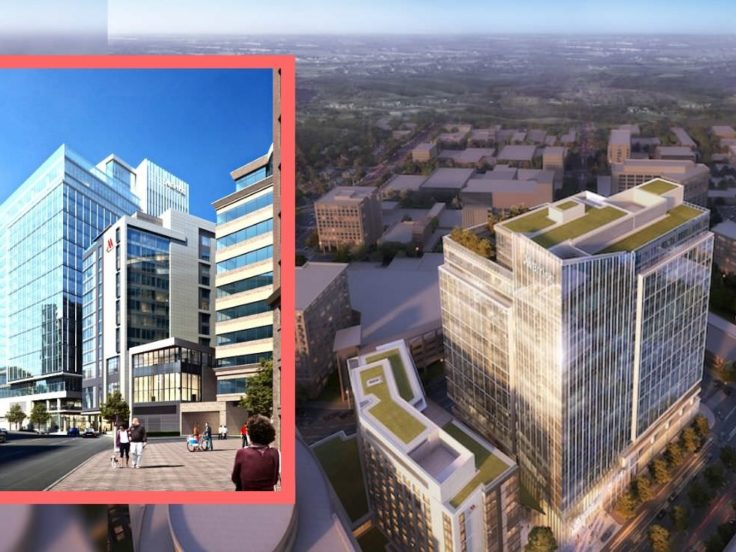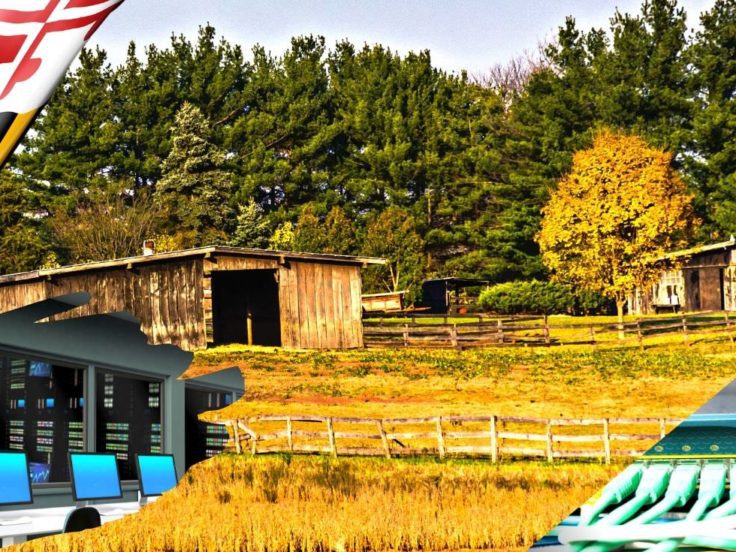Nicholas Kosar
Want to make sure that your best-in-class property remains in high demand? One way is to offer short-distance transportation amenities such as e-scooters to help office and residential tenants move quickly between transit centers – a solution that is often called the “last-mile connection.” Even better, recent data reveals that many users are actually riding scooters for their full commute.
Class A Transportation for Class A Buildings
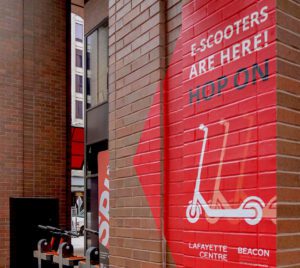 In the District of Columbia, innovative transportation is giving office buildings an edge.
In the District of Columbia, innovative transportation is giving office buildings an edge.
When Beacon Capital Partners (Beacon) acquired 2445 M Street in the West End, it planned to transform the 300,000 square foot office building into a Class A building with top-notch amenities that would attract the savviest employers. Nearby on 20th Street, Beacon’s Lafayette Centre provides 795,000 square feet across three buildings, complete with rotating events on a terrace with free Wi-Fi and a 4,000 square foot fitness center. At both buildings, Beacon aims to provide the amenities that high-end tenants have come to expect, such as an on-site café, roof deck, fitness center, and conference center.
The West End is slightly tucked away from the busiest corridors in Northwest DC; it lies just north of George Washington University and its hospital in Foggy Bottom, and just south of Dupont Circle. The character of the West End is somewhat more residential than these neighbors, which are centered around Metrorail stations.
But how are they setting themselves apart from other Class A office buildings in DC’s posh northwest quadrant? Beacon is making it easier to get around by providing its tenants with a new transportation option.
“The West End is known for its fine hotels and restaurants and its proximity to the beautiful Rock Creek Park—this unique character is an asset, but it means that our buildings are farther from Metrorail stations than other similar buildings,” explains Shane McLaughlin, Senior Vice President with Beacon Capital Partners. Beacon’s 2445 M Street property is approximately three-quarters of a mile from the nearest Red Line Metrorail stations: Farragut West, Foggy Bottom, and Dupont Circle.
How is Beacon Capital Partners setting their properties apart from other Class A office buildings in DC’s posh northwest quadrant? They are making it easier to get around by providing tenants with a new transportation option.
Micro Mobility + Real Estate Are Natural Partners
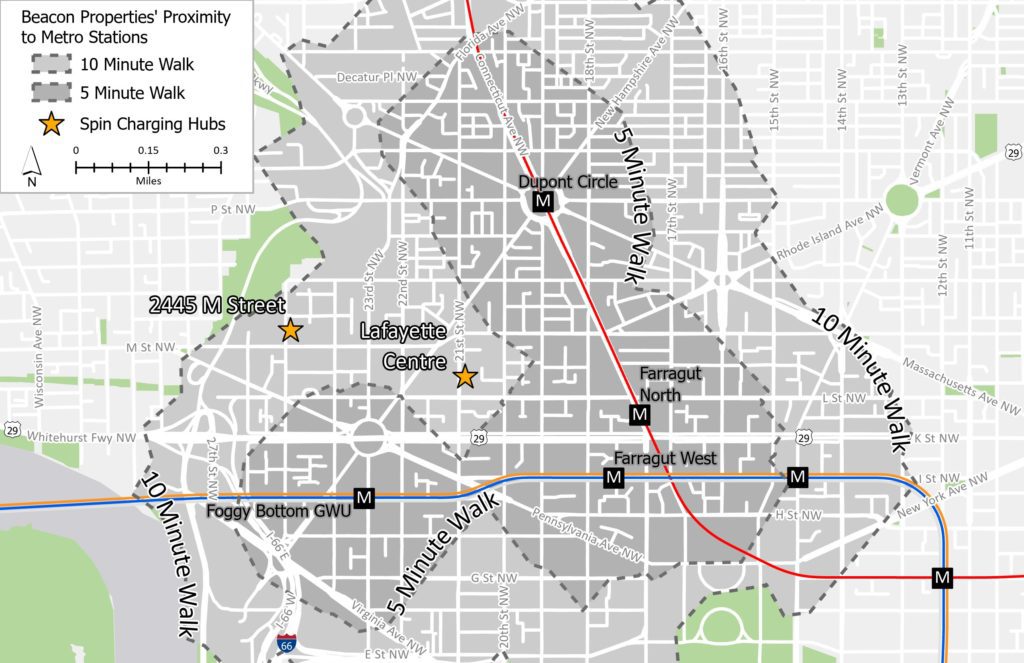
The Wells + Associates (W+A) team recommended that Beacon bridge this gap with micro mobility. According to Justin Schor, principal at W+A, “E-scooters help people with what we call in the industry the ‘last-mile’ connection. It is often the final step of a person’s commute, what brings them from a transportation hub like a bus stop or train station to the front door of their office.”
Micro-mobility tools can also be used to get commuters from their homes to a transportation hub, the first leg of their trip.
Spin Electric Scooter Hubs: Ensuring Availability for Tenants
The W+A Connect+ team identified that Beacon could create more convenient access to their buildings in the West End if they had e-scooter charging stations installed at the properties, and knew that Spin would be the right micro-mobility provider.
Schor explains, “If a commercial property is going to claim an amenity, its tenants need to be assured that it is regularly available for their use. Typical dockless e-scooters end up being left in somewhat random locations that don’t allow for reliable and convenient availability. But Spin Hubs provide fixed and organized locations where e-scooters are regularly returned to be charged. So tenants can feel confident that they will find e-scooters when they are looking to use them.”
Although scooters can be left anywhere—as long as they are not blocking a sidewalk or roadway—at some point e-scooters must be charged. Spin has found that partnering with property owners interested in micro-mobility solutions and locating charging stations on-site benefits not only their building’s tenants but others in the community as well.
Spin has found that partnering with property owners interested in micro-mobility solutions and locating charging stations on-site benefits not only their building’s tenants but others in the community as well.
“Hubs bring a sense of reliability back to the dockless mobility world. Knowing there’s a charged scooter waiting right outside your door or nearby, helps people incorporate e-scooters into their everyday routines,” explains Zander Bonorris, Director of Regional Partnerships with Spin.
In November 2019, W+A worked with Spin to install an e-scooter station with space for six e-scooters at 2445 M Street and six spaces at Lafayette Centre. Now employees working in Beacon’s West End buildings can pick up a scooter from the on-site charging station and ride it to a nearby Metrorail station. Scooters can also be used for other popular short trips during the day, such as picking up lunch or running errands.
Beacon is eager to promote this new mobility option to both current and prospective tenants. “We are excited to include e-scooters in our menu of amenities at 2445 M Street and Lafayette Centre. We think Spin Hubs will increase connectivity at those properties and we are excited to see how tenants use e-scooters as a last-mile solution and more,” says McLaughlin.
The first step in making a micro-mobility amenity valuable is making sure it is available and convenient to tenants, which is accomplished by installing Spin Hubs on the property. But another important step is effectively communicating it as an amenity to both tenants and visitors through effective design and branding. W+A helped draw attention to the e-scooter charging hubs by designing and overseeing the installation of unique vinyl graphics that incorporate the branding of each property and provide an instant visual cue that the Spin e-scooters are an amenity provided by Beacon.
Beacon’s 2445 M Street building is well on its way to becoming a center for high-end employers. In addition to a plethora of impressive on-site amenities, such as a best-in-class conference center, a two-story fitness center and roof deck, 2445 M Street and Lafayette Centre now have an amenity that expands their influence, quite literally. Both properties have seen immediate tenant engagement with the new amenity and received great feedback about it.
Personal transport commuting options such as scooters will become even more important to properties as the real estate industry comes out of the current coronavirus slow-down period, which may cause near-term shifts in commuting behavior away from public transit and ride-hailing.
Electric Scooters: More Than A Last-Mile Solution
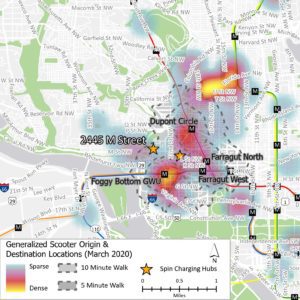
Preliminary data from Spin shows employees at Beacon’s West End buildings are not only using e-scooters to connect with nearby transit hubs, they are using e-scooters for their entire commute.
Data shows that from December 15, 2019, to March 1, 2020, just before the novel coronavirus pandemic took hold in the U.S., approximately 5% of trips were used as last-mile connections, between Beacon’s buildings and nearby transportation hubs. However, the average trip distance was 2.14 miles—much higher than a trip to the train station requires—and many trips were made to and from residential neighborhoods, indicating that most users are actually riding scooters for their full commute.
“It looks like some employees have figured out that riding a scooter all the way to their office in the West End is actually more convenient, and cost-effective, than going to a metro station and waiting for a train only to travel one or two stops,” explains Matthew Holden, former Geospatial Data Scientist with W+A.
This experience in northwest DC has brought to light the three-fold value of integrating hub-based e-scooters into real estate developments: better availability for tenants, a convenient last-mile connection and – surprisingly – a full-commute option.
Case study by Camille Galdes
Photos by Vanessa Schor

